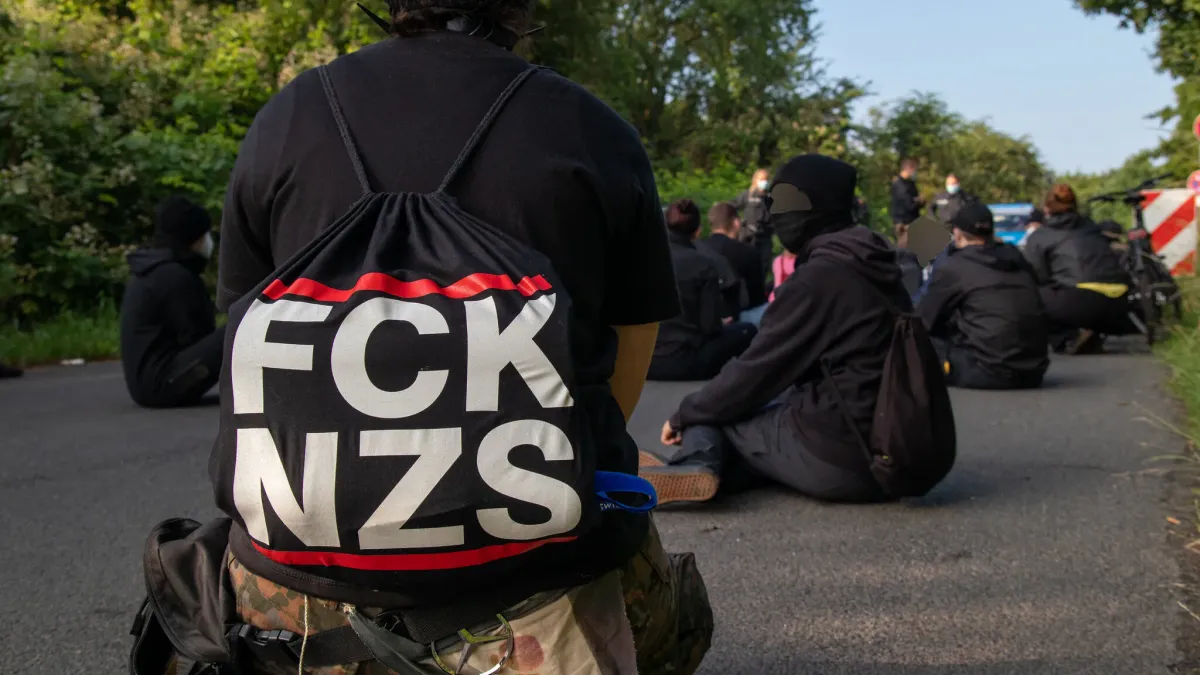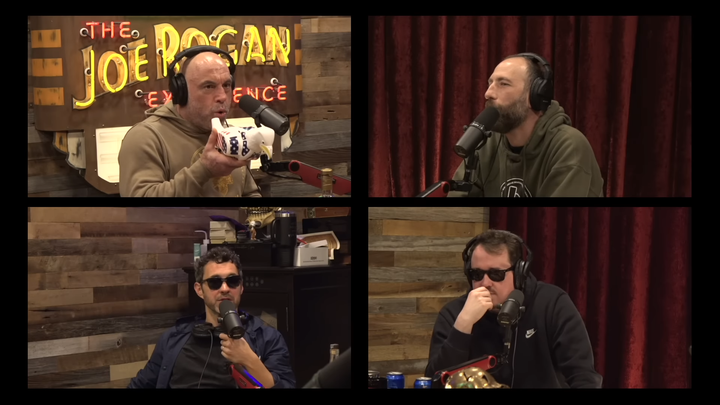Potent Weapons
Two passages of interest.

Periodic reminder: if you bought a paid subscription via Substack and someday decide you want to cancel, please email me or parthi@letterdrop.com to take care of it; for annoying reasons, the payment processor won't let you cancel via Letterdrop. Please don't force-cancel by asking your bank to dispute the charge, which does get the job done but also hits me with a penalty fee. I'd much prefer the awkward email! Okay, on with today's business.
Today I want to share a few interesting paragraphs I came across recently. They're nothing you don't already know, but I found them helpful articulations of a phenomenon we've been discussing for a while—comedy's role in the spread of far-right ideology and the development of far-right communities.
The first is from Antifa: The Anti-Fascist Handbook, Mark Bray's history of antifascist movements, in a section about how the alt right dodged mainstream hostility to white supremacy by reframing it:
By framing feminism, queer liberation, and anti-racism as facets of a stultifying, unnatural, "PC" hegemony, the alt-right have given frustrated racist white people, especially men, a "rebellious" outlet to express what they had been thinking all along. Fascists and white nationalists have pursued this line of recruitment by infiltrating white-majority subcultures such as the skinhead scene, punk more broadly, metal, neo-folk, goth, video games, and fantasy genre communities (evident in Gamergate), hipster culture (Nazi hipsters known as "hipsters"), and even furries and bronies (men who are fans of My Little Pony). This tendency shows the importance of anti-fascism in subcultural contexts.
Sound familiar?
The second is from a recent report by the European Commission's Radicalization Awareness Network examining how extremist movements use humor "to subvert open societies and to lower the threshold towards violence." This specific passage is from a section detailing exactly humor shifts the Overton window for far-right politics:
“The most potent weapons known to mankind are satire and ridicule,” civil rights activist Saul Alinsky wrote back in 1971 in his renowned book Rules for Radicals. This advice has been key to winning the hearts and minds of people, especially by progressive movements, as “through humour much is accepted that would have been rejected if presented seriously.” In recent years, Alinsky’s book experienced an unexpected renaissance in far-right circles. Their activists learned the lesson that laughter is imminently important to strengthen a collective identity and to better communicate their own positions to outsiders. By reformulating prejudices and disguising them in witty language, the interplay of hatred and amusement regarding the misery of supposedly inferior groups runs like a golden thread through the history of far-right movements. From the Ku Klux Klan to the Nazis, from Pegida to the Identitarians, the mocking denigration of other groups has been a symbol of self-assurance emphasising the notion of supremacy.
Recent generations of far-right extremists have chosen transgressive humour and (supposed) satire as central weapons in the fight against liberal democracy and its “political correctness,” which is depicted as prudish and patronising. Praising a “politically incorrect” attitude, humour has been weaponised as a form of resistance against a political culture that is supposedly curtailing free speech. Especially culturally sensitive language has been taunted with vulgar expressions that affect widespread resentments with humorous elements. Hence, derogatory statements are given a humorous guise to make them more compatible with the political mainstream[...]
In the case of far-right extremism, humour helps to reframe hate-based ideologies, thereby reducing objections towards positions that would otherwise be condemned by the wider public. At the same time, it helps to cover up one’s own barbarity and to ignore the consequences of one’s own rhetoric and actions.
That reframing of hate-based ideologies is exactly what we've been seeing in comedy recently. It happens again and again. Someone says something horribly, incontrovertibly hateful—often on camera and/or on social media—and his peers immediately close ranks around him to say No, that wasn't hateful at all, and in fact you're the bad guy for saying it is. The natural endpoint of this trend seems pretty clear. The more comedy spaces increase their tolerance for hate speech, the more hateful people they will attract and the more hateful ideas they will promote.
Well, good thing comedy has a proud culture of antifascism—instead of, say, a proud culture of not taking reactionary comedy seriously because it's just comedy.
Header image via Constantin F./Flickr.


